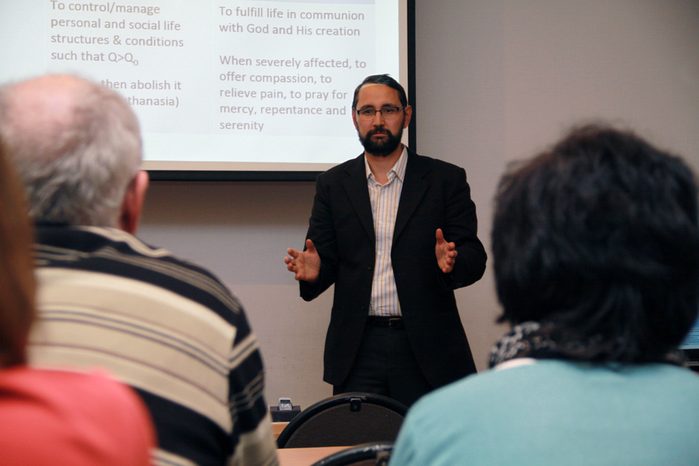Лаборатория медико-психологической реабилитации развивает зарубежные рабочие контакты
Новость

Лаборатория медико-психологической реабилитации развивает зарубежные рабочие контакты
Лаборатория развивает зарубежные рабочие контакты с коллегами – участниками Третьей международной научно-практической конференции «Аддиктивное поведение: профилактика и реабилитация» в 2013 г.
Журнал «Современная зарубежная психология» в первом номере за 2014 год размещает публикацию доцента румынского университета Лучиан Блага Себастиана Молдована, любезно подготовленную им специально для этого журнала. Статья будет опубликована в параллельном англоязычном и русскоязычном варианте (перевод подготовлен сотрудниками лаборатории - с.н.с. Н. Флоровой, подготовка иллюстративного материала к статье и техническая обработка текстов проведены н.с. А. Кошкиной). Аннотация к статье для ознакомления приводится ниже.
Следите за публикациями в журнале «Современная зарубежная психология» на сайте «Издательские проекты» МГППУ.
В планах лаборатории – рабочие контакты с другими участниками конференции.
Addictions as passions. Ancient wisdom for modern issues
Sebastian Moldovan, PhD,
Associated Professor at the ‘Andrei Saguna’ Orthodox Faculty of Theology,
‘Lucian Blaga’ University of Sibiu, Romania
E-mail: smoldova@yahoo.com
Abstracts
In order to theologically explain the concept of addictive (dependent) behavior as distorting processes of self-determination and will (sinful passion), the author analyzed the classic work of the Eastern Christian Orthodox traditional school represented by Maximus Confessor (VII th century CE). It is shown that the ancient model of submission of the human will in the passions fits into modern concepts of nonlinear conjugate cognitive and affective complexes within the self-determination process and the formation of addictiveness, and moreover this model is required now. The results show the failure of one-sided considerations of the voluntary/involuntary character of addiction, when neglecting the dialectic of consciousness and unconsciousness in human volition. Healing or purification of the soul takes place by refocusing one’s love upon her unique original purpose - especially the real love for God. It seems that a careful pro-active attitude to the passions also performs important environmental function, while reconstructing the ontological meaning of love. The author summarizes his study as evidence that the cause of addictive behavior today as well as the recovery from it are the same phenomena as in ancient times.
Keywords: Eastern Christian spiritual tradition; addictive behavior; passion; love; self-determination; the will; the dialectic
Partial results were shared in public at some conferences since 2011, the last one at the Third International Scientific Conference “Addictive behavior: prevention and rehabilitation”, Moscow, November, 6-7, 2013. I am most grateful to the Organizing Committee for the outstanding opportunity to present there my research, and to Mrs. Nina Florova, who translated for me in Russian, for insightful observations and especially for patiently encouraging me to publish these ideas in a printed version, too.